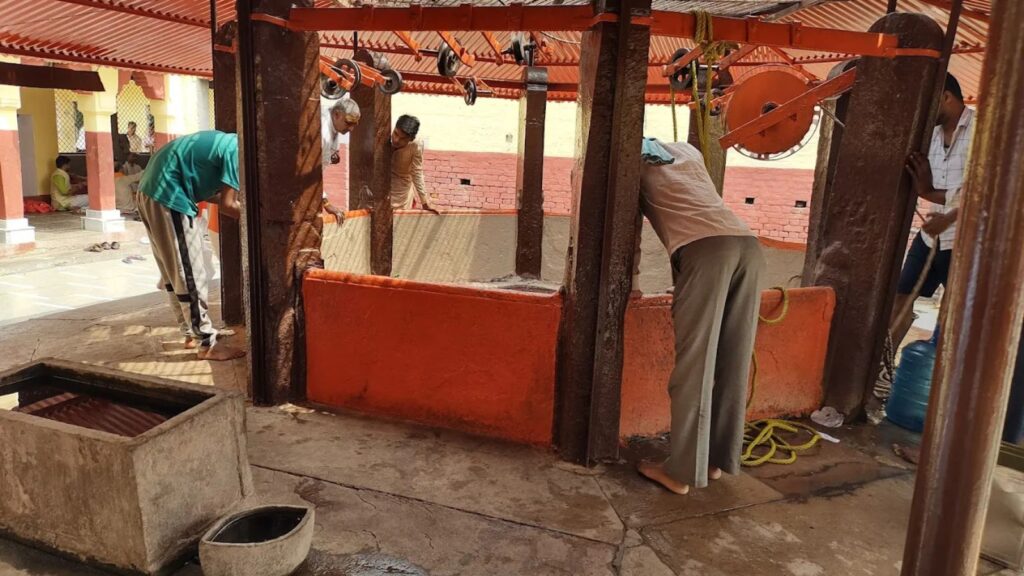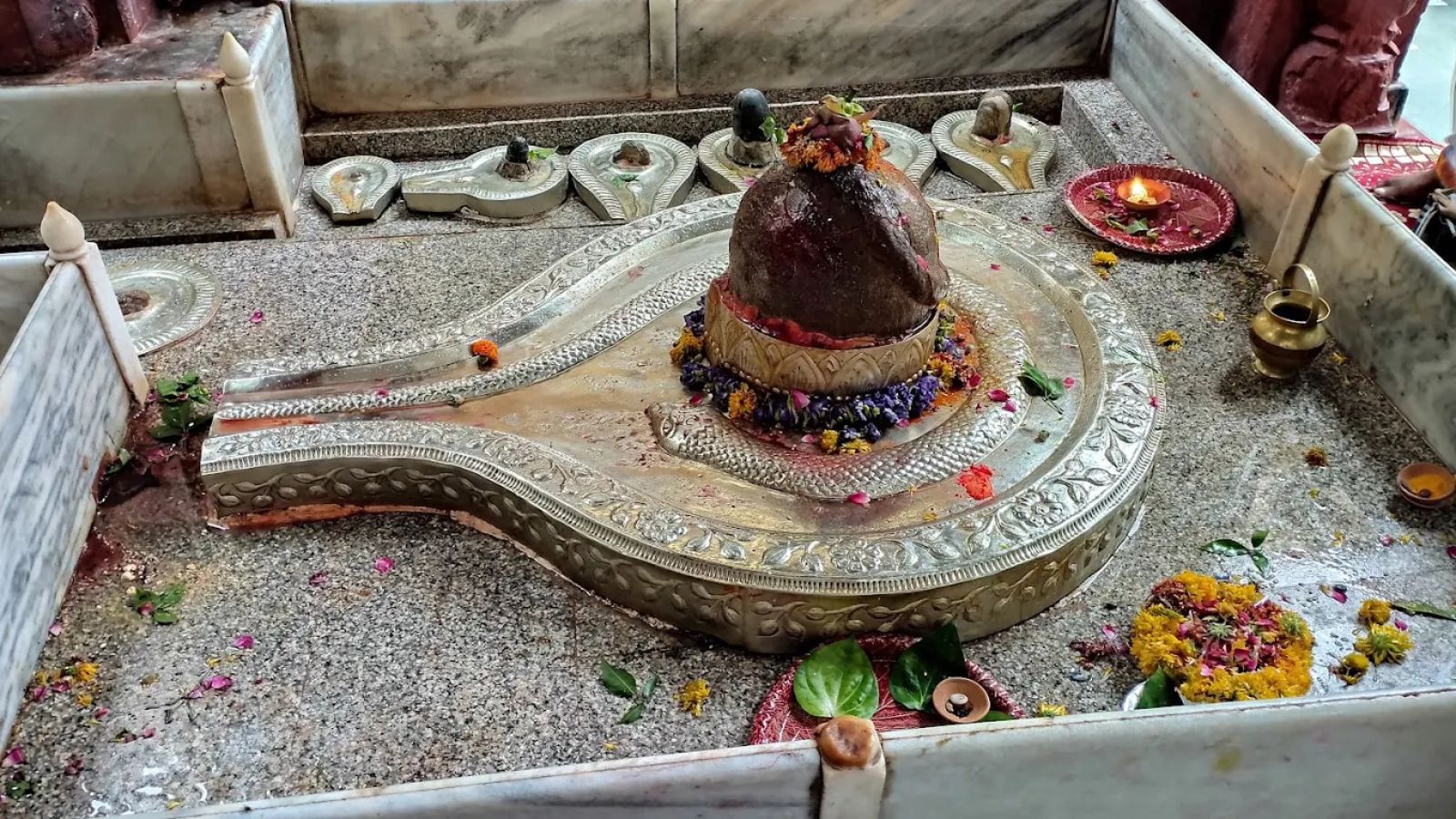The Mrityunjay Mahadev Temple in Varanasi is a revered shrine dedicated to Lord Shiva in his form as Mrityunjay, the conqueror of death. The name comes from the Sanskrit words mrityu (death) and jaya (victory), symbolizing Shiva’s power to shield devotees from untimely death and grant longevity. The temple is a center of daily worship and the chanting of the Maha Mrityunjaya Mantra, a powerful Vedic hymn believed to bestow health, peace, and spiritual liberation.
The present structure of the temple dates back to the 18th century, though local traditions and shrines within the complex are said to be much older. Legends associate the site with sage Dadhichi, who is believed to have offered his bones here to create divine weapons against evil forces. A sacred well in the temple premises, known as the Mrityunjay Kund or Dhanvantari Well, is thought to hold healing properties. Pilgrims often take its water as a remedy for ailments, trusting in its divine blessings.

The well within the temple premises
As one of the city’s important spiritual landmarks, the temple draws devotees seeking protection, good health, and freedom from suffering. During festivals like Mahashivaratri, the temple becomes a vibrant hub of rituals and collective devotion.
Nearby attractions
- Kaal Bhairav Temple – 350 m
- Bharat Mata Temple – 700 m
- Tilbhandeshwar Temple – 900 m
- Maha Mrityunjay Kund (within the temple complex) – onsite
- Ghats of the Ganga (Manikarnika) – approx. 1 km
Picture Credits: Uttam Srivatsava, and Chawdary Raj



